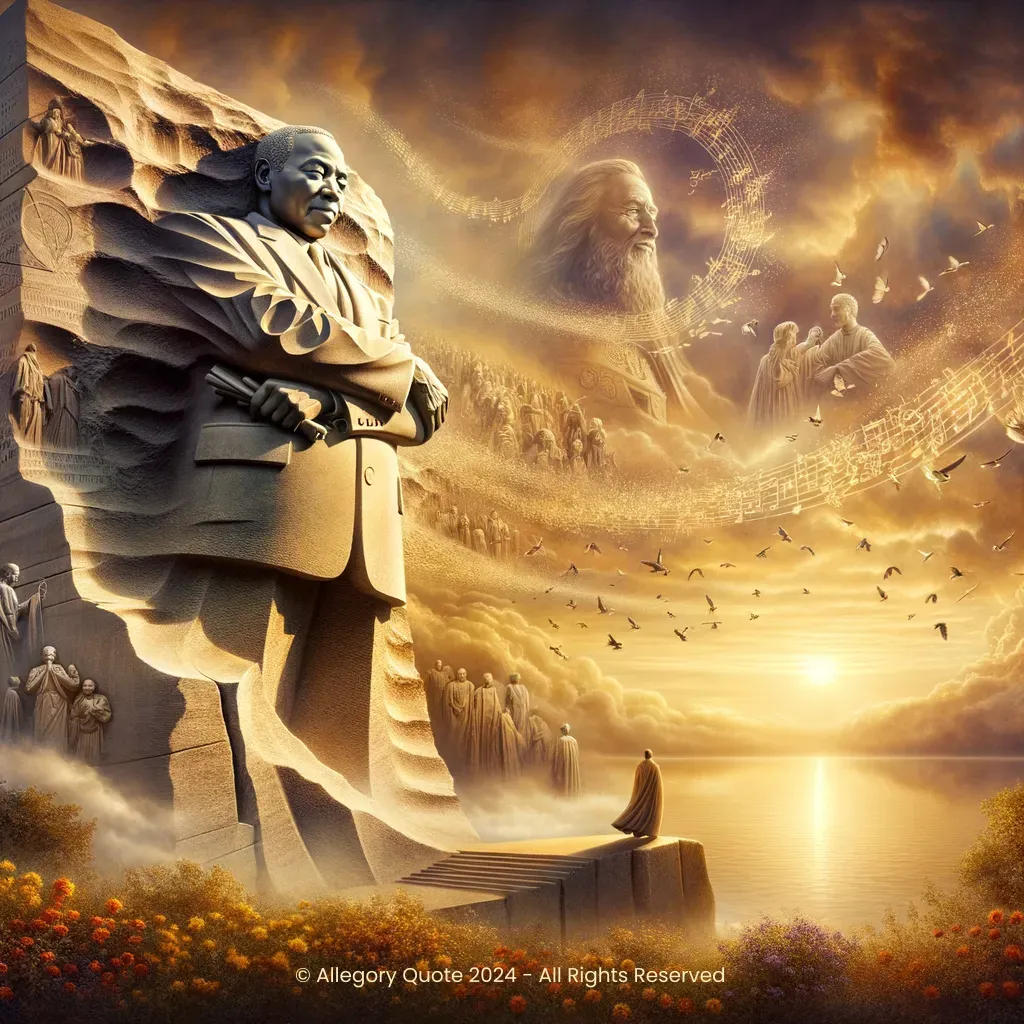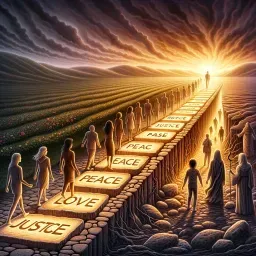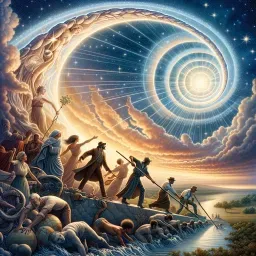What we do in life echoes in eternity

0
0
0
0
- Meaning
- This phrase suggests that our actions in life have lasting impacts far beyond our immediate experience. It hints at the concept of legacy—that the choices we make and the deeds we perform reverberate throughout history, influencing others and leaving an enduring mark on the world. The phrase aligns with a philosophical view that one's life can have a meaningful, lasting impact.
- Allegory
- The monumental stone statue represents the individual and their deeds standing the test of time. The cliff signifies the height and overlooks into the vastness of the universe, symbolizing the perspective of eternity. The engraved scenes on the statue depict various noble actions, highlighting the concept that our deeds are etched into the fabric of history. The sunset with its warm hues symbolizes the passage of time and the eternal nature of these echoes. The subtle angelic figures and music notes in the sky demonstrate the divine or everlasting impact of good deeds. Birds in flight and blooming flowers in the foreground add dynamic elements of life and continuity, further supporting the idea that actions ripple through eternity.
- Applicability
- In personal life, this can serve as a reminder to act with integrity, purpose, and thoughtfulness. Understanding that our actions have long-term effects can inspire us to make positive contributions to society, be kind, and strive for excellence in our endeavors. It can guide individuals to consider the broader consequences of their actions.
- Impact
- The impact of this phrase has been significant, mainly because of the popularity of the film "Gladiator." It has been quoted in various motivational contexts and speeches, embodying a universal sentiment about the importance of our actions and their lasting effects. The film's powerful delivery of this line has made it memorable and influential, inspiring discussions about legacy and morality.
- Historical Context
- The phrase was coined around the year 2000, in the context of the film "Gladiator." The historical backdrop of the film is ancient Rome, specifically around the 2nd century AD during the reign of Emperor Marcus Aurelius. Although the phrase itself is modern, it reflects timeless themes of honor, legacy, and the human impact on history.
- Criticisms
- There are few criticisms directly related to this phrase. However, some might argue that the premise presents an overly heroic or simplified view of human actions and their impacts, ignoring the complex web of outcomes and the often unforeseeable nature of historical influence. Critics could suggest that it comes from a socio-cultural context that romanticizes the idea of individual legacy.
- Variations
- A variation of this phrase might include interpretations from Eastern philosophies, like in Buddhism, where actions (karma) have echoes in eternity through the cycle of rebirth. Such philosophies also stress that our deeds have lasting influences beyond our present life.
-

Trust, but verify.
-

There is no beauty in the finest cloth if it makes hunger and unhappiness.
-

The road to hell is paved with good intentions.
-

The arc of the moral universe is long, but it bends toward justice.
-

We must be the great arsenal of democracy.
-

Genius is one percent inspiration, ninety-nine percent perspiration.
-

Man is condemned to be free; because once thrown into the world, he is responsible for everything he does.
-

Success is not final, failure is not fatal: It is the courage to continue that counts.
-

Greed is good.
-

The public service is a public trust.
No Comments